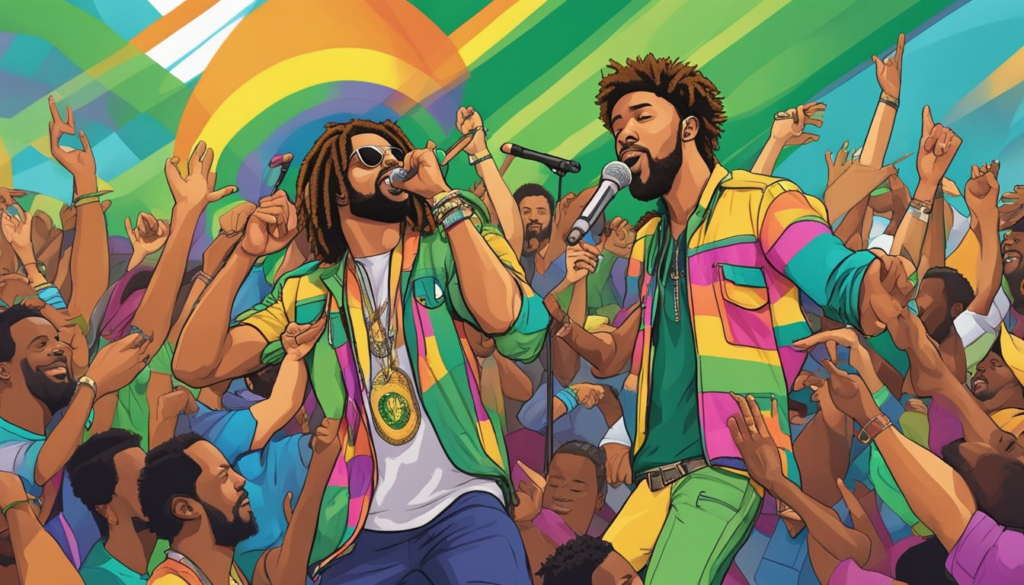The Caribbean has been the birthplace of several notable contributors to Black history and culture in America.
These individuals have made significant contributions to the advancement of the African American community and their achievements have been celebrated throughout the world.
From civil rights activists to writers, musicians, actors, and more, Caribbean people have left an indelible mark on American society.
In this blog, we’ll explore some of these notable individuals who have helped shape Black history and culture in America over the years.
Join us as we celebrate their contributions and recognize their invaluable role in shaping our world today.
Diversity and Rich History Of Caribbean
The tenacity, diversity and rich history of Caribbean people have greatly influenced Black history and culture in America.
The influence of Caribbean people cannot be overstated in shaping Black history and culture in America.
Their tenacity, diversity, and rich history have contributed to the uniqueness and resilience of Black communities.
From the early 20th-century contributions of Hubert Henry Harrison to the groundbreaking achievements of Shirley Chisolm, Caribbean Americans have left a significant mark on American society.
Furthermore, their music, which is deeply rooted in African and Caribbean cultures, has shaped and influenced Black music in America.
Despite the challenges of migration, Caribbean people have maintained a distinct cultural identity that has only reinforced their contributions to Black history and culture.
Overall, the impact of Caribbean people on American Black history and culture is immeasurable and their legacies will continue to inspire generations to come.
Caribbean Music
The music of the Caribbean has shaped African and Caribbean people’s culture and influenced American Black music.
The music of the Caribbean has had a profound influence on African and Caribbean people’s culture and has also significantly impacted American Black music.
With a blend of African, European, and Indigenous Latin American influences, Afro-Caribbean music has evolved into a unique and diverse style of music.
The Caribbean people brought music such as reggae, calypso, and salsa to America, which has helped shape American Black music by infusing it with rhythms and styles like funk, soul, and jazz.
The influence of Caribbean music can be seen in the works of notable American Black musicians like Bob Marley, Aretha Franklin, and Beyoncé.
The sounds of the Caribbean have not only enriched African and Caribbean music, but they have also significantly influenced and contributed to the development of American Black music.
It’s evident that the Caribbean’s music has played a pivotal role in shaping Black history and culture in America.
Cultural Distinctiveness
The strong cultural distinctiveness that Caribbean people maintained since migrating to the United States has reinforced their contributions to Black history and culture.
Caribbean people have had an unmistakable impact on Black history and culture in America.
One of the significant reasons for this is the strong cultural distinctiveness maintained by Caribbean people since migrating to the United States.
This distinctiveness reinforced their contributions to Black history and culture.
Caribbean people have a distinct identity, which is reflected in their language, food, music, and traditions.
Their unique cultural expression has continued to inspire and influence Black culture in America.
The Caribbean-American community has proven to be self-reliant, using their cultural strength and heritage to push their way towards success.
As a result, Caribbean-Americans have made great strides in various fields, from politics to medicine and entertainment.
Their cultural distinctiveness remains an integral part of their identity and has significantly contributed to Black history and culture in America.
Afro-Caribbean people
Most Afro-Caribbean people are the descendants of Africans held captive during the Atlantic slave trade.
It cannot be overstated that most Afro-Caribbean people are the descendants of Africans who were forcibly taken and held captive during the Atlantic slave trade.
This traumatic history of enslavement has shaped the cultural identity and experience of Afro-Caribbean people as a distinct group within the broader Black diaspora.
Despite the challenges and injustices faced by their ancestors, Afro-Caribbean people have persevered and made significant contributions to Black history and culture in America.
Understanding and acknowledging this shared history of oppression is crucial in recognizing and valuing the continued resilience and achievements of the Afro-Caribbean community.
American Black History And Culture
The influence and contributions of Caribbean people to American Black history and culture cannot be underestimated.
Overall, it is clear that Caribbean people have made invaluable contributions to Black history and culture in America.
Their tenacity, diversity, and rich history have greatly influenced the development of these communities, and notable figures such as Hubert Henry Harrison, Shirley Chisolm, and Joseph Sandiford Atwell have left lasting legacies.
Additionally, the music of the Caribbean has shaped African and Caribbean culture and influenced American Black music.
While Caribbean people have faced unique challenges in maintaining their cultural distinctiveness since migrating to the United States, their contributions to Black history and culture cannot be underestimated.
Notable Caribbean People
As we continue to study and celebrate Black history, it is important to recognize and honor the vital role that Caribbean people have played in shaping this history.
Hubert Henry Harrison
Hubert Henry Harrison, a Caribbean-American, contributed significantly to American Black history in the early 20th century.
Hubert Henry Harrison was a Caribbean-American who made an immense contribution to American Black history in the early 20th century.
As an orator, writer, and political activist, he played a crucial role in shaping African American intellectual thought and civil rights movements.
Harrison was a radical thinker who advocated for class solidarity and unity among all marginalized groups.
He also pioneered in the fight against racial discrimination, challenging the notion of black inferiority and insisting on the importance of black self-determination.
Harrison’s impact on American Black history and culture is undeniable, and his work has continued to shape the discourse on race and equality today.
His contributions are just one example of the significant role Caribbean people have played in shaping America’s Black history and culture.
Shirley Chisolm
Shirley Chisolm, the daughter of Caribbean immigrants, was the first American congresswoman of color.
Continuing with the theme of notable contributions from Caribbean people to Black history and culture in America, Shirley Chisolm stands out as a trailblazer.
Chisolm was born in Brooklyn, New York, to immigrant parents from the Caribbean.
In 1968, she made history by becoming the first African American woman elected to the United States Congress.
She served seven terms in Congress and went on to seek the Democratic presidential nomination in 1972, becoming the first African American woman to run for president from a major political party.
Chisolm’s political legacy and groundbreaking achievements have paved the way for many other Black women in politics.
Her life serves as an inspiration for all who aim to make a difference and achieve their dreams.
Her contribution to society is a reminder that anyone, regardless of their background, can make a significant impact on history and culture.
Edward Wilmot Blyden
Edward Wilmot Blyden, a Virgin Islander, made significant contributions to Black Nationalism.
Edward Wilmot Blyden, born in the Virgin Islands, was a prominent figure in Black Nationalism.
He argued that the African race had made significant contributions to human civilization and advocated for the unity of people of African descent.
His major work, Christianity, Islam, and the Negro Race, proposed that practicing Islam could be more unifying and fulfilling for Africans than Christianity.
As the father of Pan-Africanism, Blyden sought to vindicate the Negro race and promote African cultural institutions and customs.
His contributions to Black history and culture cannot be overstated.
Joseph Sandiford Atwell
Joseph Sandiford Atwell, a Barbadian, became the first black man to receive an MD degree from Harvard Medical School.
Another notable contribution made by Caribbean people to Black history in America is the achievement of Joseph Sandiford Atwell.
Atwell was a Barbadian man who became the first Black person to attain an MD degree from Harvard Medical School.
This accomplishment was significant because, during the time Atwell attended Harvard, the institution was known for accepting only a limited number of African American students.
His success paved the way for generations of young Black medical professionals who followed in his footsteps.
Atwell’s achievement highlights the importance of education and the role it plays in uplifting individual lives and communities as a whole.
His accomplishment instills pride and serves as a reminder of the remarkable achievements of Caribbean people in Black history and culture.
Bert Williams and Marcus Garvey
Caribbean-American comedian Bert Williams and black nationalist Marcus Garvey were early 20th century West Indian immigrants of note.
Caribbean-American comedian Bert Williams and Black nationalist Marcus Garvey were among the notable West Indian immigrants of the early 20th century who left a lasting impact on Black history and culture in America.
Williams was one of the first Black comedians to perform on Broadway and helped pave the way for other Black performers.
Meanwhile, Garvey was a prominent leader in the Pan-African and Black Nationalist movements, advocating for Black self-determination and independence.
Together with other Caribbean immigrants, they contributed to the rich cultural tapestry of African and Caribbean influences that have shaped American Black culture to this day.
Their legacies remind us of the important contributions that immigrants continue to make to Black history and culture in America.

